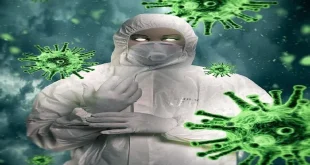
Blood clotting: Anxiety and depression give rise to many diseases. Perhaps that is why it is said in the Gita, “Do your duty and do not worry about the results.” Everywhere you will find people doing illegal occupation. Some have suffered huge losses in business, while others are under stress due to family disputes. A study found that anxiety or depression can increase the risk of blood clots in the body by about 50 percent. Brain imaging has shown that stress increases the risk of inflammation, deep vein thrombosis and mental illness. Due to which blood clots start forming in the veins.
Data from over 1.1 lakh people were analysed to understand the link between anxiety and depression and the risk of deep vein thrombosis. Brain imaging was done on 1,520 people. Of them, 1,781 people (1.5 per cent) developed blood clots over three years. Researchers found that anxiety or depression increases the risk of blood clots in case of deep vein thrombosis by about 50 per cent. If you suffer from both anxiety and depression, you have a 70 per cent chance of developing blood clots.
According to research, anxiety and depression increase the risk of deep vein thrombosis. The average age of the participants in the research was 58 years, of which 57 percent were women. 44 percent of the group also had a history of cancer.
What are blood clots?
A blood clot is a clump of blood that forms when platelets and proteins in your blood stick together. Platelets are fragments of cells that normally help your blood clot. Blood clots help reduce bleeding from an injury. They break down and dissolve as your body heals.
Its symptoms start appearing before a blood clot forms in the body
swelling and pain in the hands and feet,
skin rashes,
There may also be swelling all over the body.
Sudden shortness of breath
Severe chest pain that gets worse with deep breathing
normal cough or coughing up blood
leg or back pain
Fainting or dizziness
Low BP
sweating profusely
do this treatment
You can visit a good hematologist to treat blood clots. A hematologist is a doctor who specializes in blood-related diseases. Blood thinners are used to prevent blood clots from forming. But it does not break up clots already present in your blood. It is only used to prevent the development of blood clots.
 look news india
look news india


